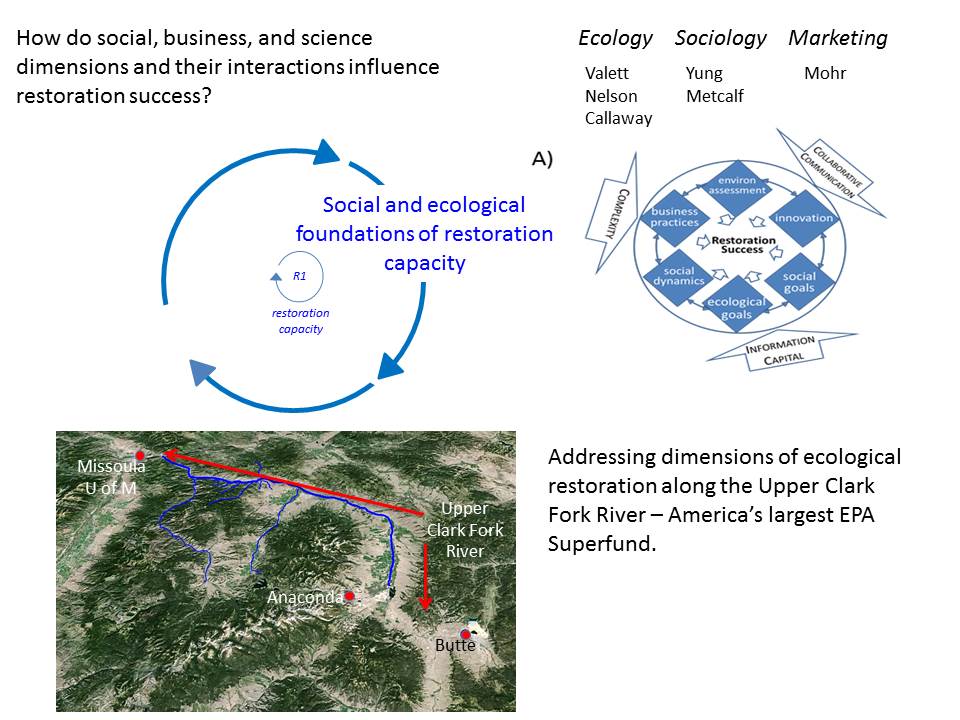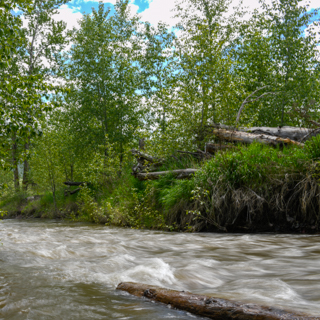Social and Ecological Dimensions of Restoration Capacity (RCAP)
Each time humans embarke on an ecological restoration project, business is being done.
People are involved. Stakeholders are concerned and environmental conditions are being addressed.
As such, a Restoration Socio-Ecological System (RSES) self-assembles.
The practice of ecological resotoration is a billion dollar business in the United States, yet
we don't fully understand the priorities that shape or forces that drive restoration success.
The Socical and Ecological Dimensions of Restoration Capacity (RCAP) project combines
experts from the social sciences (sociology, marketing) with natural sciences (ecosystem and restoration ecology)
to address a fundamental question:
Q1: How do social, business, and science dimensions and their interactions influence restoration success?
Our central hypothesis argues for the primacy of integration among dimensions of the RSES:
Ho: The degree of integration among business, social, and scientific dimensions determines success
because it generates restoration capacity as an emergent property of the SES.
The project focuses on restoration of the Upper Clark Fork River, MT.

